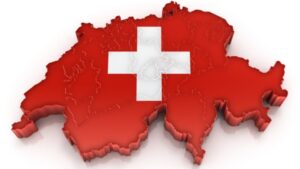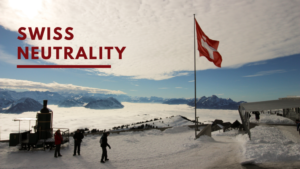 Switzerland has long been a neutral nation when it comes to wars other conflicts. That hasn’t always been an easy status to accomplish. According to the Hague Convention of 1907, a neutral country means that the country has declared nonparticipation during a war and cannot be counted on to help fight a belligerent country. “Non-belligerent” countries are ones that offer non-combative support in times of war. Countries interpret neutrality differently. Switzerland has what would be called armed neutrality in global affairs. Switzerland is not alone in that status, since Ireland, Austria, and Costa Rica all take similar non-interventionist stances, but Switzerland remains the oldest and most respected.
Switzerland has long been a neutral nation when it comes to wars other conflicts. That hasn’t always been an easy status to accomplish. According to the Hague Convention of 1907, a neutral country means that the country has declared nonparticipation during a war and cannot be counted on to help fight a belligerent country. “Non-belligerent” countries are ones that offer non-combative support in times of war. Countries interpret neutrality differently. Switzerland has what would be called armed neutrality in global affairs. Switzerland is not alone in that status, since Ireland, Austria, and Costa Rica all take similar non-interventionist stances, but Switzerland remains the oldest and most respected.
The desired neutrality in Switzerland started back in 1515, when the Swiss Confederacy suffered a devastating loss to the French at the Battle of Marignano. Apparently, they really lost their taste for war following the defeat, because the Confederacy completely abandoned its expansionist policies and did everything in their power to avoid any future conflict in the interest of self-preservation. No one likes a war, but I don’t think that many nations detest it so much that they would go to such extremes. While the Battle of Marignano began the desire for neutrality, it was the Napoleonic Wars, that truly sealed Switzerland’s place as a neutral nation. Switzerland was invaded by France in 1798 and later made a satellite of Napoleon Bonaparte’s empire, forcing it to compromise its neutrality. With Napoleon’s defeat at Waterloo, the major European powers decided that a neutral Switzerland might actually be a good thing. Given the volatility of the area they decided that Switzerland would serve as a valuable buffer zone between France and Austria and contribute to stability in the region. I’m not sure how they figured that, considering the fact that they would not fight. Nevertheless, during 1815’s Congress of Vienna, they signed a declaration affirming Switzerland’s “perpetual neutrality” within the international community. Switzerland had what it wanted, as did the international community.
Attaining neutrality and keeping it can be two very different things. Nevertheless, Switzerland maintained its impartial stance through World War I, when it mobilized its army and accepted refugees, also still refusing to take sides militarily. The newly formed League of Nations officially recognized Swiss neutrality and established its headquarters in Geneva in 1920. World War II presented a more significant challenge to Swiss neutrality, when the country found itself encircled by the Axis powers. For a country that no longer had a desire to fight, this was a big problem. Switzerland was able, with threats of retaliation, to maintain its independence. Switzerland also continued to trade with Nazi Germany, a decision that later proved controversial after the war ended, and one they most likely regretted.
Switzerland has taken a more active role in international affairs by aiding with humanitarian initiatives since World War II, but it fiercely maintains its neutral status with regard to military affairs. Switzerland has never joined the North Atlantic Treaty Organization (NATO) or the European Union, and only joined the United Nations in 2002. Despite its longstanding neutrality, the country still maintains an army for defense purposes and requires part-time military service from all males between the ages of 18 and 34. It always best to be prepared…just in case.


Leave a Reply